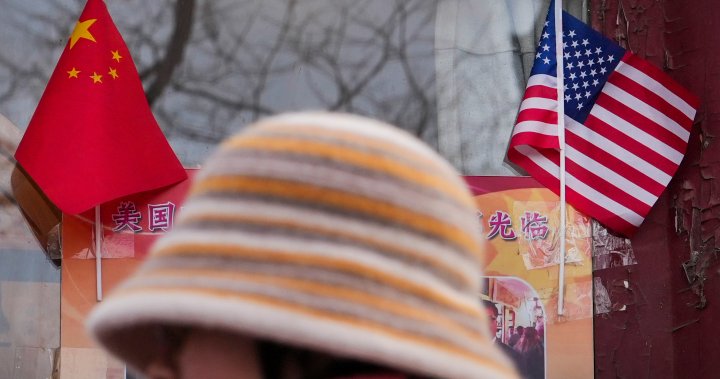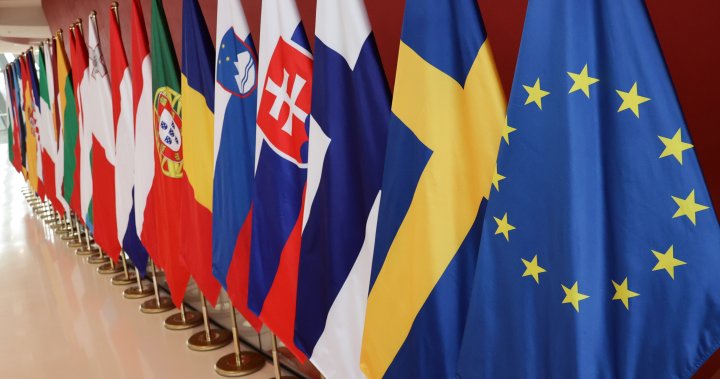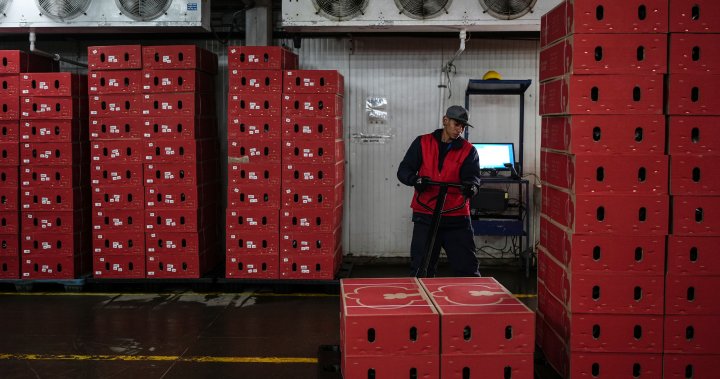Sweden embarks on a search for more cemetery space in case of war – National

Burial associations in Sweden are looking to acquire enough land for something they hope they’ll never have to do: bury thousands of people in the event of war.
The search follows recommendations from the Church of Sweden’s national secretariat, which reflect crisis preparedness guidelines from the Swedish Civil Contingencies Agency (MSB) and the Swedish Armed Forces.
The preparedness guidelines have been put in a new light by Sweden’s decision to join NATO and tensions with Russia in the Baltic Sea region.
According to the Church of Sweden provisions, supported by legal paragraphs in Sweden’s Burial Act, burial associations are responsible for ensuring the availability of enough land to bury roughly five per cent of the population within a parish, if needed.
The Goteborg Burial Association, which operates in Sweden’s second-largest city, is currently trying to navigate the challenge of acquiring at least 40,470 square metres of land to ensure it can handle urgent casket burials for some 30,000 dead in case of war. That is in addition to another 60,700 square metres of land needed for building graveyards for regular use in Goteborg.

“The (recommendations) mean that we need more land for burial grounds and this is a phenomenon in the big cities, and a problem in the big cities, where land resources are scarce to begin with and not always sufficient to meet burial ground needs even in times of calm and peace,” said Katarina Evenseth, senior advisor at the Goteborg Burial Association.
Together with the local municipality, which has a monopoly in making decisions about land usage in Goteborg, the burial association has identified a vast area appropriate for building a large-scale cemetery for the intended purpose.

Get breaking National news
For news impacting Canada and around the world, sign up for breaking news alerts delivered directly to you when they happen.
But a lengthy approval and building process means it could take approximately 10 years to complete, posing further challenges in uncertain times.
Meanwhile, the Swedish Civil Contingencies Agency (MSB) continues to stress the importance of crisis preparedness and highlights the efforts of the Church of Sweden.
“Already back in 2015 the government assigned various authorities to once again start engaging in civil defense planning, and many organizations have started planning, with the Church of Sweden being at the forefront of that planning,” said Jan-Olof Olsson, Critical Infrastructure Protection (CIP) expert at MSB.
“Unfortunately it is the case that we are reminded to a greater degree that war could happen and that we simply need to be prepared for that,” Olsson said.
Sweden pursued a policy of neutrality from the early 19th Century, including during the Second World War.
But public opinion shifted sharply in 2022 after Russia launched a full-scale invasion of Ukraine, leading to Sweden and Finland applying to join the transatlantic alliance out of concern about the threat from their newly aggressive Russian neighbour across the Baltic Sea.
Sweden and Finland sent out updated civil preparedness guides in November with instructions on how to survive in war. The guides are similar to those in Denmark and Norway, though they don’t mention Russia by name.

© 2024 The Canadian Press









